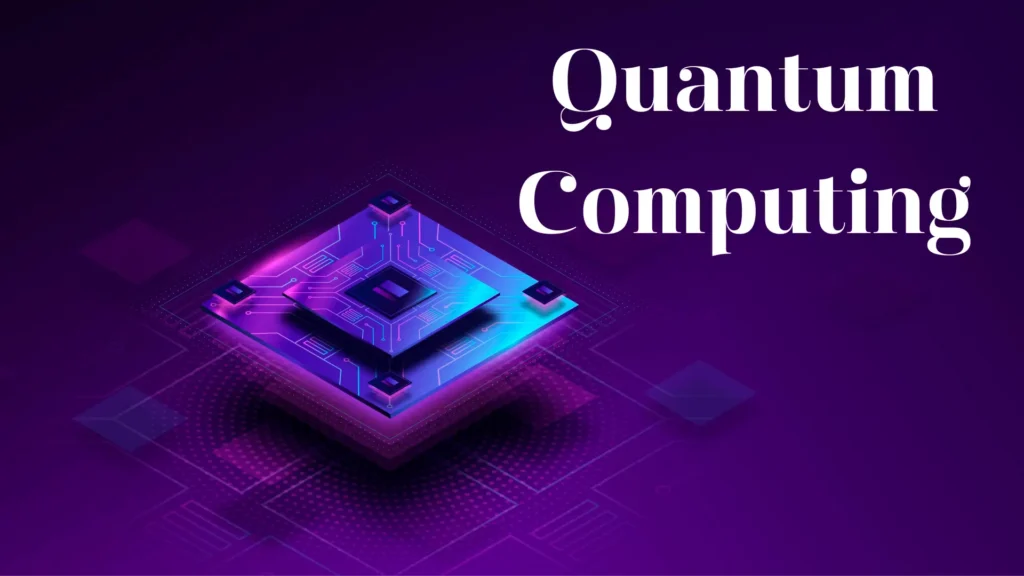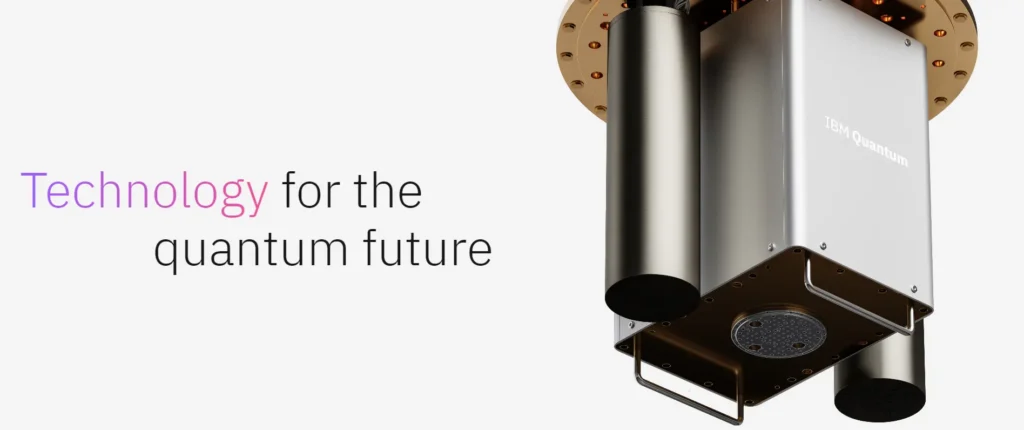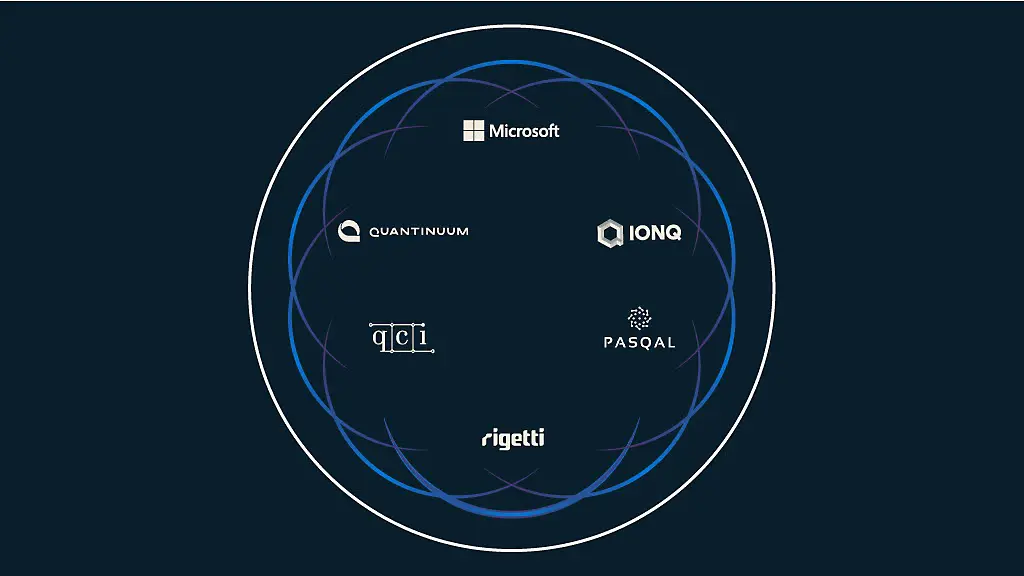Introduction to Quantum Computing

Quantum computing is one of the most promising and developing technologies in the last few years. Thanks to harnessing the role of quantum mechanics, much is being done to bring about change in how information is processed, problems are solved and new innovation brought about in different fields. In this article, we will introduce this disruptive technology and its principles, and learn more about the industry giants, including IBM and Azure.
What is Quantum Computing?
In its simplest form, quantum computing is a complete revolution in the paradigm of data handling. In contrast with conventional computers that operate using distinct data arrangement known as bits, quantum systems work using quantum bits abbreviated as qubits. These qubits can be in at least two states simultaneously which is the essence of quantum machines performing millions of calculations. This particular feature makes them capable of solving certain problem much quicker than conventional computers.
This technology can be said to be of immense importance as a result of two tenets of quantum mechanics, superposition and entanglement. Superposition is the ability of a working qubit to be in state 0, 1, or both at the same time entanglement makes two or more qubits behave in a way that the state of a given qubit depends on the state of the other regardless of the space between them. It means the connection and porosity of these transition layers invite a whole new range of computational opportunities.
Key Concepts in Quantum Computing
Qubit
As depend on the basic unit of the quantum systems that are called the qubit. While a standard bit may only be either 0 or 1, a qubit may be 0, 1, or a complex blend of 0 and 1 at the same time in the time-space continuum. Such property enable quantum computers to handle a large amount of information at the exact same time.
For example, classical computer is able to represent just a few bits which are able to represent just a few states but a quantum computer with similar qubits can represent exponentially more ranges of states. This is what makes quantum machines grow exponentially in computation and this is an extraordinary thing.
Quantum Machine Learning
Machine learning based on quantum mechanics is relatively unexplored in the literature. Quantum machine learning is the attempted improvement of classical algorithms by using quantum systems. Through this, it seeks to rev up the rate of data analysis, enhance the speed of relationship identification, and tailor decision making processes in several fields.
Possible application areas start with efficient supply chain management and move as far as efficient drug design. While generating quantum algorithms, it may be possible to obtain better efficiencies that cannot be achieved by classical algorithms in the future.
Leading Players in Quantum Computing
IBM Quantum Computer

IBM has been one of the pioneers of quantum computing from the time the field started gaining relevance. That is why the company has created IBM Quantum – a solid infrastructure enabling researchers and developers to work with real quantum processors via the cloud. It is an open access and multi-industry collaborative initiative applied in the quantum technology domain.
The quantum computing systems from IBM are created to address huge challenges in chemistry and drug development, cryptography, logistics, and artificial intelligence. In IBM Quantum’s case, the goals are to develop both the quantum computing hardware and the software stack to make quantum computing a reality not only at the application level but also at the system level.
Azure Quantum

Microsoft’s entry into the quantum space appears as a cloud-based, all-encompassing platform called Azure Quantum. Azure Quantum lets developers build quantum apps and interact with quantum hardware from multiple suppliers with help of a single platform.
Besides, it is simultaneously used to scale quantum computing and connect it with classical cloud assets, so businesses may try out this modern technology without substantial investments.
Current State and Future of Quantum Computing
However, the area of quantum computing is progressing quite actively, and, indeed, major breakthroughs have been made in the past few years. Recent improvements in the hardware front and in algorithmic approaches have created the foundation for application soon.
Some problems are left unsolved: error rates and quantum system’s ability to solve complex problems. In regards to price, the price factor has remained an inhibiting factor to adoption of quantum computers.
Although the first screened models are costly, it can be expected that subsequent investment in research and development shall make the models cheap in the long-run. This change will increase demand and make more organizations start look into quantum technologies.
Challenges Facing Quantum Computing
However, several issues impede the implementation of quantum technologies here below. This is mainly because the underlying quantum systems themselves present a great challenge. Qubit coherence seems hard to sustain and errors can greatly affect the eventual calculations.
There are studies currently ongoing to implement error control algorithms to overcome these problems. Secondly, the scalability issue is another main challenge of quantum systems. When the number of qubits grows, the representing and functioning of these systems become problematic. Toward tangible application, searching for optimization approaches becomes deemed fundamental to scalability.
Conclusion

Quantum computing is a radical change in how much data can be computed and how hard a problem it is to crack. Only by knowing what qubits are, or how quantum machine learning is integrated into this system, can one really grasp what kind of change this technology presents. As such the giants like IBM and Microsoft are setting the pace in the future of quantum systems.
Frequently Asked Questions
Quantum computing differs from classical computing in that it uses qubits instead of bits. Whereas classical bits can be either 0 or 1, qubits can exist in multiple states simultaneously due to a phenomenon called superposition. This allows quantum computers to process large amounts of possibilities simultaneously, offering potentially exponential speed-ups for some calculations. Additionally, quantum computers use quantum entanglement, which enables them to perform complex operations more efficiently than classical computers.
No, quantum computing is not inherently part of AI, but the two fields are becoming increasingly intertwined. Quantum computing and artificial intelligence (AI) are different but complementary technologies. Quantum computing involves taking advantage of the principles of quantum mechanics to process information in a way that classical computers cannot. It involves using quantum bits (qubits) to perform complex calculations more efficiently.
AI, on the other hand, focuses on creating systems that can learn from data and make decisions. However, quantum computing has the potential to significantly enhance AI by solving problems that are currently not possible for classical computers. For example, quantum algorithms could potentially speed up machine learning tasks or optimize large-scale data analysis, leading to more powerful AI applications in the future. Thus, while quantum computing is not part of AI, it could greatly advance AI capabilities.
Quantum computing is a revolutionary technology that uses the principles of quantum mechanics to perform calculations. Unlike classical computers, which use bits as the smallest unit of data (either 0 or 1), quantum computers use qubits, which can be both 0 and 1 simultaneously due to a property called superposition. This allows quantum computers to process a lot of possibilities at once.
A real-life example of quantum computing is its potential application in drug discovery. Traditional computing methods can be time-consuming and limited when modeling complex molecules and interactions. Quantum computers, with their advanced computational power, can simulate molecular structures more accurately and quickly, potentially leading to faster development of new drugs and treatments for diseases. This application demonstrates how quantum computing can transform industries by solving problems that are currently beyond the reach of classical computers.
Yes, NASA is exploring the use of quantum computers. The space agency is interested in quantum computing for its potential to solve complex problems related to space exploration, such as optimizing spacecraft trajectories and simulating cosmic phenomena. NASA has partnered with various organizations and institutions to explore how quantum computing can enhance their research and mission capabilities. For example, NASA’s collaboration with IBM and other tech companies aims to develop quantum algorithms that can improve data analysis and mission planning, highlighting the agency’s commitment to using cutting-edge technologies for space exploration.
Quantum computing and AI serve different purposes, so it’s not a matter of one being better than the other, but how they can complement each other. Quantum computing provides unprecedented computational power using quantum phenomena, which could potentially revolutionize various fields by solving problems that classical computers struggle with. On the other hand, AI focuses on simulating human intelligence and learning from data.
In the future, quantum computing could enhance AI capabilities by processing and analyzing data more efficiently, leading to advances in machine learning and artificial intelligence applications. Thus, instead of comparing quantum computing and AI, it is more accurate to view them as synergistic technologies that together can drive significant advances in technology and science.
Quantum AI is typically run by leading technology companies and research institutions that are at the forefront of quantum computing research. Major players in this field include Google, IBM, and Microsoft, which are actively developing quantum computing technologies and exploring their applications in AI. For example, Google’s quantum AI division focuses on advancing quantum hardware and algorithms, aiming to integrate quantum computing with AI to achieve breakthroughs in various domains. Similarly, other tech giants and startups are investing heavily in quantum AI research to unlock new possibilities and solve complex problems across various industries.
Yes, Google is actively building and developing quantum computers. Google’s quantum computing division, known as Google Quantum AI, has made significant progress in this field. In 2019, Google claimed to have achieved “quantum supremacy”, demonstrating that their quantum processor, Sycamore, could solve a specific problem faster than the world’s most advanced classical supercomputer. Google is constantly advancing its quantum computing technology.
Quantum computing is the result of the contributions of many talented scientists rather than a single individual. Notable figures include Richard Feynman, who first proposed the idea of a quantum computer in the 1980s, and David Deutsch, who formalized the concept of a quantum Turing machine. In recent years, scientists such as John Preskill, who coined the term “quantum supremacy”, and Peter Shor, known for Shor’s algorithm, which can factor large numbers faster than classical algorithms, have made significant contributions to this field. These researchers, among others, have collectively advanced our understanding and development of quantum computing technology.





